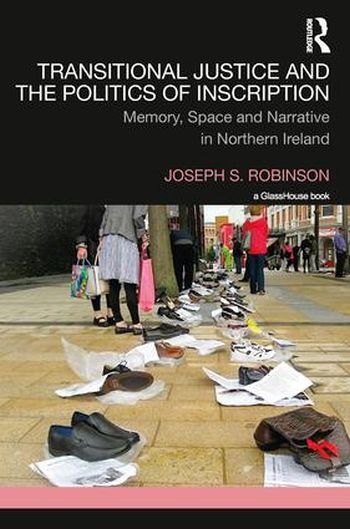We will be closed from 5pm Thursday 17th April for the Easter Bank Holidays, re-opening at 8.30am on Tuesday 22nd April. Any orders placed during this period will be processed when we re-open.

Taking Northern Ireland as its primary case study, this book applies the burgeoning literature in memory studies to the primary question of transitional justice: How shall societies and individuals reckon with a traumatic past? Joseph Robinson argues that without understanding how memory shapes, molds, and frames narratives of the past in the minds of communities and individuals, theorists and practitioners may not be able to fully appreciate the complex, emotive realities of transitional political landscapes. Drawing on interviews with what the author terms "memory curators", coupled with a robust analysis of secondary literature from a range of transitional cases, the book analyzes how the bodies of the dead, the injured, and the traumatized are written into - or written out of - transitional justice. Elaborating a dynamic transitional 'memoryscape' populated by voices at varying degrees of proximity to political and inscriptive power, the book thus uncovers the often silenced or marginalized voices whose memory productions remain trapped behind the antagonistic politics of fear and division in transitional societies.